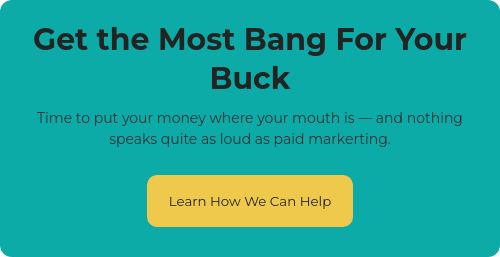It’s not just coming, it’s here – no, not winter. Facebook’s mandated adoption of campaign budget optimization (CBO) for advertisers.
Facebook has been gradually shifting to this model, and now requires all ads to be run through it.
What are the Changes with Campaign Budget Optimization?
On the surface, campaign budget optimization looks like a small change. It simply means that from now on, you’ll be setting budgets by campaign rather than individual ad sets, much the way you were already setting budgets by ad sets rather than individual ads.
But, just like everything else when you’re trying to get the word out about your product or service, it’s a little more complicated than that. The budgets will be set by campaign, because Facebook will be adjusting the amount of money allocated to each ad set based on performance on an ongoing basis.
Campaign budget optimization lets you adjust for whatever your objective is, whether that’s awareness, consideration, or conversion. You also still have control over your bid strategy, whether that’s setting an iron-clad bid cap or making sure you’ll have consistent results with a target cost. You can even set a minimum or maximum amount of your budget to use per ad set.
Facebook Takes the Reins
Once you’ve done all that – set up your ads, defined your objective, and decided on your bid strategy – Facebook takes the reins. The mechanical minds ticking away behind the site determine which of your ads are performing best according to the parameters you set and allocates more of your budget to them.
Let’s say you’re interested in conversion rate, and ad set A is knocking it out of the park with 5%, but ad set B is flagging at 1% and C is limping along at 0.05%. Rather than attribute a third of your budget to each, Facebook’s algorithms will apportion the majority of your budget to ad set A, bringing you the highest number of conversions for the same amount of money, a smaller amount to ad set B, and an ever smaller one for ad set C.
Be Prepared to Change How You Measure Success
Because campaign budget optimization is automated, it’s going to mean some changes, whether you’re new to the business and trying to hit a sustainable conversion rate, an old hand at inbound marketing just looking to get the word out about your content, or somewhere in between.
Everyone must start measuring the success of their campaigns differently since you’ll need to look at the campaign rather than individual ad sets. You’ll also have less control over pausing and unpausing your ad sets, since every time you do, the system will reallocate your budget under the assumption that the current ad set configuration is the permanent one (meaning that if you want to start an ad set in two weeks, you’ll have to schedule it rather than just leaving it paused, or risk there being no money left for it in the budget).
Campaign budget optimization is a big benefit to anyone just dipping their toes into the ad pool, since it automates a lot of the fine-tuning that experienced sellers have learned to do over time. The flip side of this is that experienced sellers, who have already developed a nuanced understanding of their market, aren’t going to see much added benefit, and may see dips in their conversion rates while the algorithm catches up with their own knowledge.
Adjust Your Inbound Marketing Strategy Accordingly
Let’s assume you’re already aware of Facebook’s CBO and are here to specifically address what your inbound marketing strategy is going to look like considering these new developments. Let everyone else deal with the nitty-gritty of ad sets and conversion rates; your strong inbound marketing strategy is going to keep people coming back to you for the great content you’re making available to them.
So, what’s Facebook’s campaign budget optimization going to mean for that? The good news is that focusing on inbound marketing means you’re insulated from any wobbles that you might otherwise see from a shift like this. The focus of inbound marketing is ensuring that your customer base is seeking you out, rather than having your ads do all the legwork.
See More Returns
That’s not complete protection, though: people still need to hear about what you’re doing to get interested in it. Inbound marketing is all about making sure that you’re courting that interest. Seeing where your money is going will be a quick and easy shortcut to find out which ads are hitting the right note. Because your content has already been designed to be attractive to consumers, you should be seeing more and quicker returns from this new targeted system.
Don’t Sit Back and Relax
With campaign budget optimization, you’ll have an easier time zeroing in on your client base and turning those potentials into prospects. To counteract the fact that your competition will likely be doing the same thing, you’ll need to produce content that is more targeted than ever. Content must stand out among all the other entities starting to see increases in customer interest as their ads are shown to the right audience.
Even if you compensate for everyone else stepping up their targeting, there’s something else that will make a bigger difference in the long term, though it may not be visible immediately. Inbound marketing isn’t just about making sure that people see your brand; it’s about what people see from you. Making sure that every click counts – that people are being guided to thoughtful, carefully chosen content that will bring them back and turn them into loyal customers – is now the goal.
Make CBO Part of Your Strategy
Whether focusing on brand awareness, acquisition, or customer service, Facebook is an essential part of any smart marketing strategy today. Pinpointing the goals of your social media strategy can help ensure you’re measuring the right outcomes, making it a lot easier to prove your efforts are worth your time.
If you need help generating website traffic, leads, sales, and customer loyalty of epic proportions, get in touch with First Page and we’ll create a custom proposal for you.






